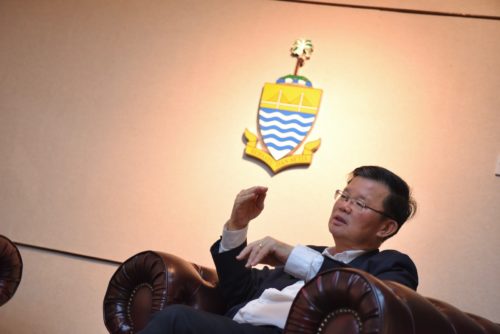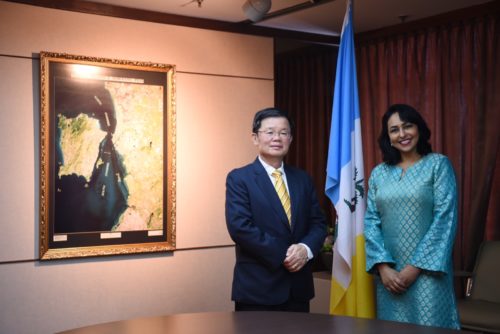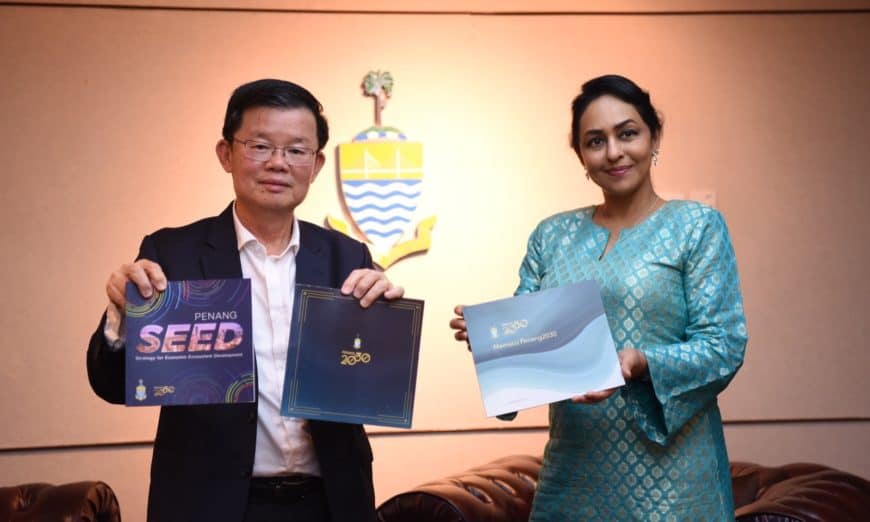MALAYSIA, in particularly Penang, still has a competitive edge over its neighbours – Thailand, Vietnam, and Indonesia – when it comes to attracting strategic investments.
Penang caretaker Chief Minister Chow Kon Yeow said potential investors usually look at political stability, democratic institution, intellectual property protection, labour law, friendly investment climate, talent pool, and education system, among others, when they consider a location to invest in.
“These are what we (Penang) have besides good infrastructure. We also have InvestPenang, the Penang government’s investment promotion agency, which provides the necessary facilitation and assistance for our investors in their decision-making. InvestPenang can help investors kickstart their investment roadmap,” Chow said in an interview with The International Business Review Asia Group (The IBR Asia Group) recently.
He said Penang has small and medium-sized enterprises (SMEs) which could support the industry.

“Penang’s industry has 50 years of experience. Unlike new locations which may offer cheap or free land, do they have the ‘cluster effect’ or ecosystem to support your operation as we have?
“That is why Penang has a competitive advantage over others when it comes to attracting strategic investments,” he said.
Chow added that Penang also chooses its investors due to its limited land and population.
“We cannot be offering 100 or 200 acres of land for a paper mill or a plastic recycling centre, for example, which does not fall into our promoted list of industry.
“Our focus industries are electrical and electronics or its spinoff – the medical devices; the Global Business Services (GBS); and others,” he said.
Chow said the state government believes in growing together with the people.
“There is little we can achieve if we work in silos or on our own. Our role as a facilitator creates platforms and forms collaborations to enable public participation.
“With facilitation, the people can play their roles and grow stronger with Penang,” he said.
Chow gave an example of the Penang Skills Development Centre (PSDC).
“PSDC has been cited by our new Prime Minister many times. It is an industry-led training and education centre in Malaysia, run by the industry for the industry.
“In the early days, we (the state) provided the premises, and the industry sets up its own council. The centre trains the workforce sent by the industry.
“This is one of the examples of collaborations or platforms available to allow the people to grow with the state,” he said.
Chow also stressed the importance of community empowerment.
“Community engagement is the model that Penang works on, whether in welfare, women, youths, sports, or environment.
“We have non-governmental organisations which collaborate among themselves or with the government to contribute to the community.
“People come forward and contribute back to society because there are platforms to do so, and that is the beauty of this state – this is the ‘Penang Magic’,” Chow said.

Expressing his hope at the end of the interview session, Chow said he would like to see Penang join the ranks of developed states.
“We have seen the behavioural change in Penangites, and the state’s cleanliness improved over the last 10 to 15 years.
“We have managed to transform Penang from being called a ‘Darul Sampah’ to a clean and green state.
“We can make it (to be a developed state),” he added.
Story by Christopher Tan
Pix by Adleena Rahayu Ahmad Radzi

